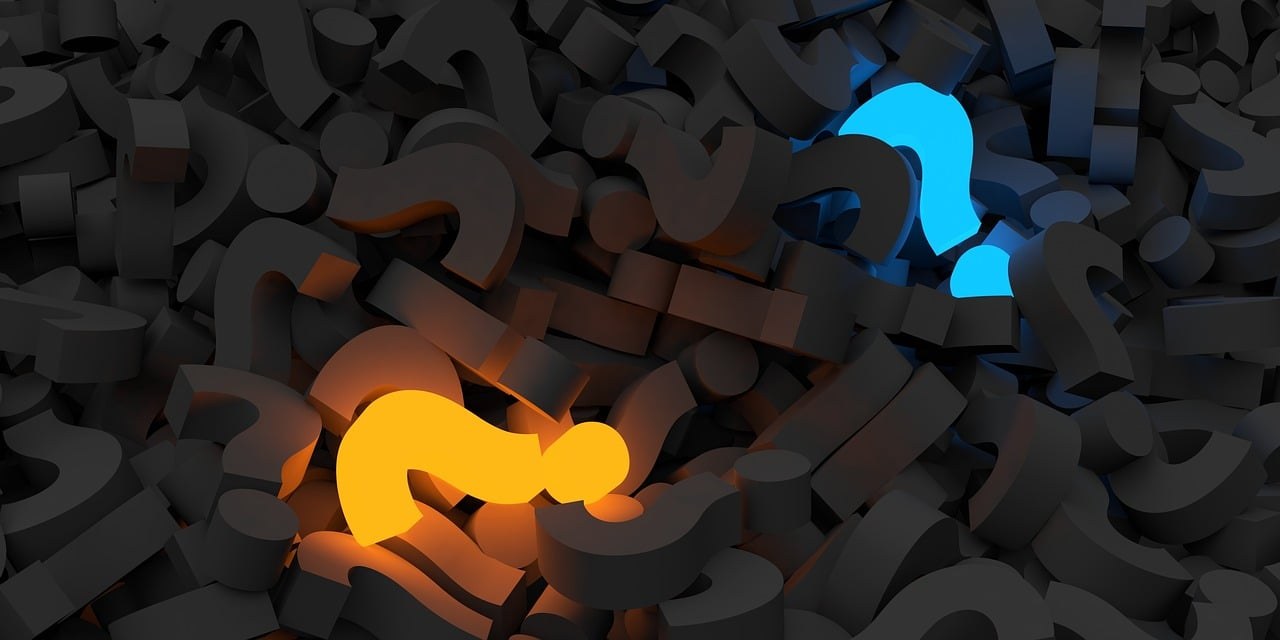Everyone hopes that a first meeting will feel effortless, but reality doesn’t always play along. When conversation stalls, boundaries get nudged, or the vibe turns oddly transactional, you may be standing in the middle of a bad first date without realizing it. Learning to recognize subtle and obvious signals early – before you invest more time and energy – helps you bow out gracefully, protect your wellbeing, and keep your optimism intact for someone who’s a better fit.
This guide reframes common signs and red flags in fresh language so you can trust your instincts without overthinking. You’ll find cues that point to a bad first date because of mismatched goals, shaky manners, or plain boredom, plus behaviors that indicate deeper problems you shouldn’t gloss over. Use these insights as reference points – not as ammunition – and remember that nerves can make anyone a little awkward. Still, patterns matter, and noticing them early can save you from a second round of the same uncomfortable energy.
Why it pays to spot trouble early
It’s easy to assume you’d immediately recognize a bad first date, yet the more invested you are – in your outfit, your hopes, your perfectly timed arrival – the easier it is to miss the little alarms. You might be concentrating so hard on saying the “right” thing that you fail to notice how you feel. But awareness gives you options. If the dynamic isn’t working, you can pivot the activity, reset boundaries, or simply end the evening politely. If the chemistry is missing or the values clash, recognizing that now preserves your time and theirs.

Being observant doesn’t mean nit-picking every quirk. It means staying grounded in your own comfort, noticing what repeats, and acknowledging that a sparkling venue can’t fix hollow conversation. Some dates misfire due to jitters; others have structural issues you can’t wish away. Knowing the distinction protects you from talking yourself into giving a bad first date multiple encores it didn’t earn.
Signals that the connection just isn’t there
Below are situational cues that suggest the date is off track. Some are subtle and require context; others are loud as a fire alarm. You don’t need every sign to conclude it’s a bad first date – one or two strong indicators may be enough.
Question blitz without conversation. Curiosity is attractive, but an interrogation is not. If the exchange feels like a job interview rather than a human conversation, your date may be dodging vulnerability or racing through dealbreakers. Either way, the rhythm is off, and that strained flow is a hallmark of a bad first date.

Zero curiosity about you. The flip side is monologue mode. If they never ask about your life and only humble-brag about cars, trips, or titles, it’s hard to build connection. That lopsided attention is an unmistakable bad first date cue.
Silences that swallow the hour. A pause here and there is normal. But when the quiet stretches keep expanding and neither of you can resurrect the spark, the evening has drifted into a bad first date by inertia.
Screen time steals the spotlight. Unless someone has a legitimate, pre-discussed reason to keep a phone handy, repeated glances at notifications signal boredom or poor manners. When the device gets more eye contact than you, you’re living the definition of a bad first date.

Humor that doesn’t land. You don’t have to laugh at everything, but if their jokes regularly cross lines you care about – punching down, mocking serious issues, or leaning on mean-spirited sarcasm – your values aren’t aligned. That misalignment tends to calcify, turning a quirky evening into a bad first date experience.
Manners missing in action. First impressions should feature everyone’s best behavior. Rudeness to staff, letting doors slam, or sloppy hygiene shows basic consideration is optional for them. Disrespect early is a preview of more discomfort later – classic bad first date energy.
Frequent misfires in understanding. Nerves cause the occasional stumble, sure. But if you keep talking past each other – or they make comments that clash with your core beliefs – it’s unlikely to improve. That friction often marks a bad first date rather than a fixable misunderstanding.
Competing agendas. Maybe you’d like a relationship while they want something casual, or vice versa. No clever banter can erase mismatched goals. Naming the mismatch saves you from stretching a bad first date into a drawn-out maybe.
Unease you can’t shake. Butterflies are different from dread. If your body says “no” – even if you can’t produce a tidy thesis – honor that feeling. Your intuition is allowed to end a bad first date without cross-examination.
Mind wandering to your to-do list. When your thoughts drift to emails, leftovers, or logistics, the connection isn’t holding you. A date should command at least some presence, and when it doesn’t, you’re likely navigating a bad first date.
Ex talk takes the wheel. A brief, neutral mention is fine. But a blow-by-blow of past drama turns you into an audience for unresolved feelings. That’s an instant mood drain – and a reliable ingredient in any bad first date.
Early exit without reason. Emergencies happen, but abrupt departures with flimsy explanations usually translate to “not feeling it.” You deserve someone who’s present, not someone planning their getaway from a bad first date.
Alcohol becomes the main event. One drink can ease nerves; several can derail judgment. When tipsiness replaces connection, authenticity goes missing – and a fun plan curdles into a bad first date.
Chemistry flatlines. No spark, no sizzle, no sense of possibility – despite the candlelight and playlist. Attraction can grow, but total absence tends to persist. That’s not a moral failure; it’s simply a bad first date with no momentum.
Counting minutes until it’s over. If you’re plotting your exit strategy instead of asking one more question, your inner compass is telling you what you need to know: this is a bad first date for you.
A single focus on hooking up. Flirtation can be fun, but pressure or innuendo from start to finish narrows the purpose of the evening. When consent and pacing aren’t respected, you’re not being courted – you’re being cornered into a bad first date.
Boasting about dating others when you’re not okay with it. If they disclose an active roster and you prefer exclusivity, your discomfort matters. Treat it as data, not drama, and spare yourself a second helping of a bad first date dynamic.
Nothing shared to build on. Opposites can attract, but total disconnect about interests, values, or lifestyle leaves you with empty space to fill. That vacuum frequently turns into a bad first date where small talk runs out of road.
Pushy touch or boundary testing. Affection should be mutual and paced. If they crowd your space or ignore polite signals, it’s not “chemistry” – it’s disrespect, and it’s the heartbeat of a bad first date.
Easily distracted energy. If everything in the room captures their attention more than you do, sustained rapport will be an uphill climb. You’ve wandered into a bad first date powered by short attention spans.
Conversation without color. When stories lack shape, questions lack follow-up, and the tone feels mechanical, you’re not imagining it. Dullness is a symptom, and the diagnosis is often a bad first date.
Compliments that feel rehearsed. Sweet words are welcome; scripted flattery isn’t. If their warmth seems performative, you’re probably not their focus – you’re their audience. That hollowness is a common thread in a bad first date.
No mention of seeing each other again. You don’t need to lock in specifics, but genuine interest usually hints at another meet-up. Silence can be kind, but it can also confirm a bad first date that won’t repeat.
Arguments out of the gate. Spirited debate is different from instant hostility. If you’re sparring within the first hour, imagine week two. You’re not sparking – you’re in a bad first date skirmish.
Can’t recall their name later. Forgetfulness happens, yet total blankness often signals a lack of engagement. That detachment is another small, telling sign of a bad first date.
Relief when it’s over – the wrong kind. Feeling happy because it went well is great. Feeling thrilled to escape is another matter. That lightness is you exiting a bad first date environment.
Silence the next day. After a rewarding night, one of you usually checks in. If neither of you reaches out, you’re both quietly admitting it was a bad first date.
Behavioral red flags you shouldn’t rationalize
The next set of signals speaks less to nerves and more to character. Unlike ordinary awkwardness, these behaviors point to deeper issues that rarely improve with time. If you see them, consider yourself lucky for the early reveal and move on before a bad first date becomes a difficult entanglement.
Late arrival without courtesy. Life happens, but a quick heads-up is easy. Showing up late with no acknowledgment telegraphs disregard for your time – a disrespectful tone that turns into a bad first date before appetizers land.
Overeager intensity. Gushing compliments, future-planning within minutes, or grand declarations can feel flattering yet manipulative. Pace matters. When intensity steamrolls consent and context, the evening veers into a bad first date with control disguised as romance.
Offensive beliefs said plainly. Slurs, sexist “jokes,” or pride in demeaning views are nonstarters. You’re not obligated to educate anyone while seated in a bad first date that disrespects your values.
Rudeness to service staff. How they treat people they don’t need says everything. If “please” and “thank you” are missing, courtesy likely will be too. That tone sets up a persistently bad first date pattern.
Ex-obsession. Continual complaints about a former partner signal unresolved resentment. You’re not a therapist, and you don’t need to sit through a bad first date built on someone else’s past.
Closed mind, closed ears. Disagreement is natural; disdain is not. If they mock your beliefs rather than engage, you’re watching empathy malfunction – and cementing a bad first date verdict.
Bragging about ghosting or cheating. Consider it an unsolicited reference. People who recount this behavior casually are telling you their playbook. That confession turns the meeting into a cautionary, bad first date story.
Empty neutrality about everything. Claiming to care about nothing – politics, community, anything larger than themselves – isn’t chill; it’s apathy. Building a life with apathy is hard, and it often starts with a bad first date.
Boundary dismissal. Safety preferences like meeting in public or arranging your own ride are reasonable. If they mock or push past them, that’s your cue to leave a bad first date immediately.
“I’m not like other people.” This line often precedes behavior that’s exactly like the stereotype they deny. Treat it as branding for a bad first date, not a promise of uniqueness.
Weirdness around the bill. Paying should never become a power play. Grandstanding over who “must” cover the check, or insisting you foot it, turns something simple into a control test – a subtle but telling bad first date red flag.
Constant judgment of strangers. Critiquing bodies, outfits, or choices from a nearby table reveals a harsh lens that may soon target you. Don’t stick around to be the next subject of a bad first date takedown.
Appearance and hygiene disregarded. Style is subjective, yet basic care communicates respect. If cleanliness and effort are missing, it’s fair to see that as part of a bad first date pattern.
Arrogance as a soundtrack. Pride in achievements is great; constant bragging is exhausting. When conversation becomes a victory parade, intimacy stalls and a bad first date unfolds in slow motion.
Relentless self-put-downs. The mirror image of bragging can be equally draining. If they fish for reassurance nonstop, you may end up managing their feelings instead of getting to know each other – a textbook bad first date dynamic.
Needing rescue from everything. Chronic damsel-in-distress energy or constant requests for favors and money point to dependence, not partnership. That’s not a rough patch – it’s a structural bad first date issue.
Oversharing intimate details immediately. Authenticity matters, but pacing is part of safety. Spilling everything on hour one blurs boundaries and leaves you overloaded in a bad first date fog.
Audience hunting. Some people want listeners, not partners. If they hold court and never circle back to you, the relationship they seek is applause – hence the bad first date feeling of being invisible.
Stories that strain reality. Tall tales about celebrity circles or luxury routines that contradict other facts hint at dishonesty. Trust needs truth, and without it you’re stuck in a bad first date performance.
Clinginess from minute one. Rapid-fire texts, jealousy about nothing, or manufactured tiffs to test devotion are control tactics in disguise. That’s not intensity – that’s a blazing bad first date warning.
“Technically” still attached. If someone hasn’t fully ended another relationship, ambiguity becomes your problem. You deserve more than a bad first date in a love triangle.
Drifting through life without intention. Exploration is fine; apathy about growth is not. Long-term aimlessness often turns every plan into friction – beginning with a bad first date that lacks purpose.
Endless negativity. When complaints outnumber curiosities, the mood drops – and so does your desire to connect. That cloud is the weather system of a bad first date.
Feeling unsafe for any reason. The first hint of danger is enough. You don’t owe explanations. Exit. No good story is worth turning a bad first date into a risky one.
Can an awkward evening recover?
Sometimes, yes. Jitters can scramble timing, and unfamiliar settings can make anyone a bit stiff. If most of what you noticed was situational – a loud room, a mismatched activity, a bout of stage fright – it might be worth a brief, low-pressure second meet to test whether the awkwardness was temporary. But when you’ve clocked patterns like disrespect, dishonesty, or boundary pushing, that’s not awkward; that’s character. In those cases, the kindest choice for both of you is to let a bad first date be the end of the story.
Whatever you decide, let your internal signals guide you. You don’t need to construct elaborate justifications. If you felt small, bored, pressured, or uneasy, you learned something useful. The right match will make presence feel easy, curiosity mutual, and respect nonnegotiable – the opposite of a bad first date. Until then, treat each mismatch as practice: you refined your boundaries, honored your time, and made space for something that fits.